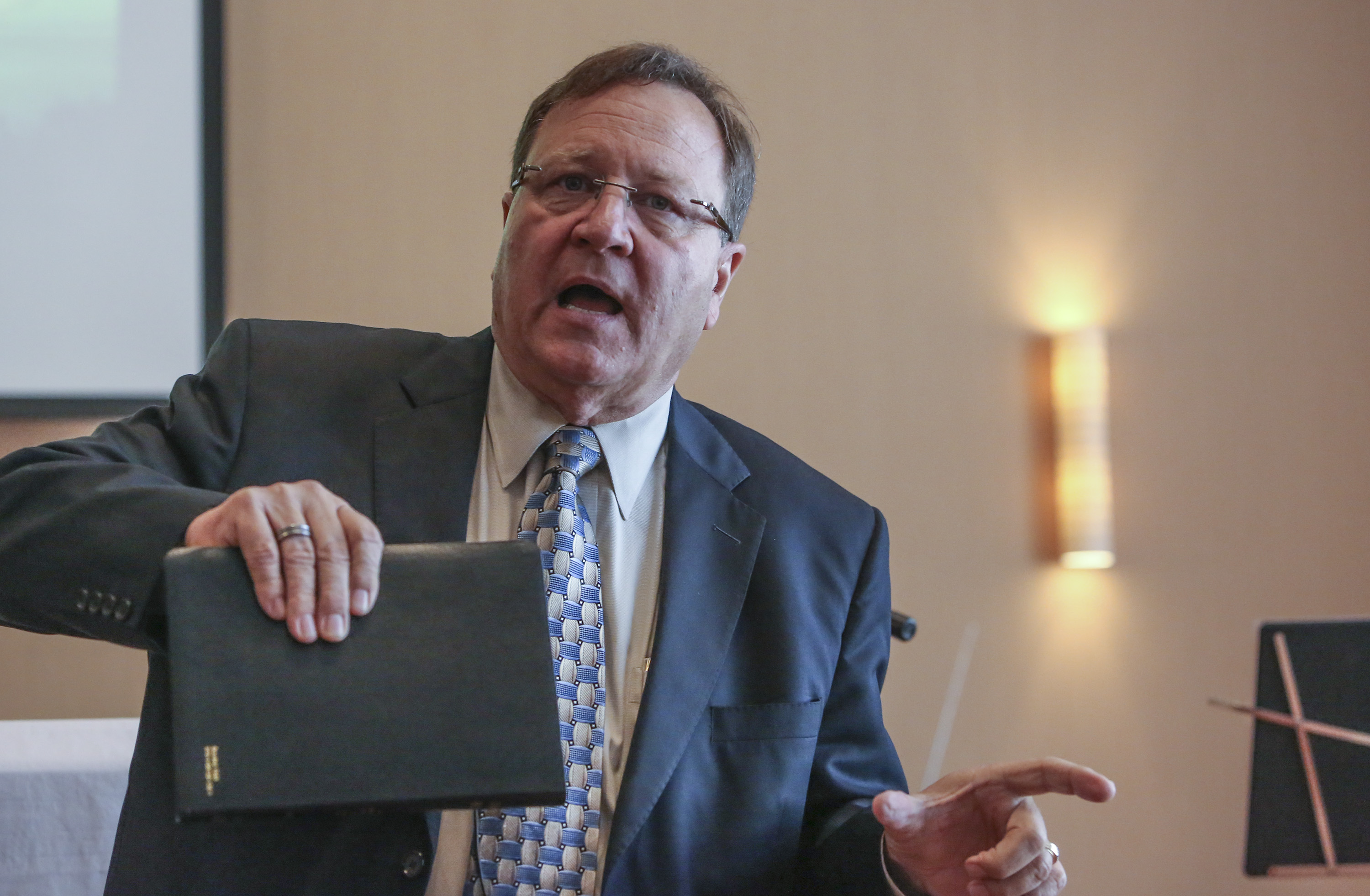
BALTIMORE (BP) — Misunderstandings of God’s plan for Israel abound among evangelicals, and correcting them is a key aspect of teaching biblical doctrine, Bruce Stokes said during the Southern Baptist Messianic Fellowship meeting in Baltimore.
“You have to keep Israel central to everything you do, or you’re going to wander away from the text,” Stokes, SBMF vice president and pastor of the DiscipleCenter in Anaheim Hills, Calif., said.
Joining Stokes as a speaker at the gathering was Michael Herts, SBMF missions development manager and founding leader of B’nai Avraham Messianic Fellowship in Hampton, Va. In a business session, the current officers were re-elected: Ric Worshill, president; Stokes, vice president and director of missions; and Herts, missions development manager.
The meeting theme of “Kingdom Purpose” encouraged Messianic Jews (Jews who follow Jesus as Messiah) to share the Gospel with Jewish people and others.
A common misconception in Christian theology is that the church replaces Israel as the people of God under the new covenant, Stokes said, a doctrine known as replacement theology. Instead, a series of covenants unfold in Scripture like a “blooming flower,” he said, and ethnic Israel plays a role in all of the covenants — from God’s covenant with Noah to His covenants with Abraham, Moses and David and the new covenant.
Neither the theological system known as dispensationalism nor the system known as covenant theology accurately describes the unfolding covenants, Stokes said.
The covenants are “like a flower that’s blooming, and the roots are that Noahic covenant,” Stokes said June 7 at the Hilton Baltimore. “Then the Abrahamic gives expression, and then the Mosaic gives expression, then the Davidic. It just grows until they all bloom into fullness in the culmination of the age and then are superseded by the new covenant that brought them all together.”
Another common misconception is that God saved His people by works under the old covenant but saves them by grace under the new covenant, Stokes said. He explained that both covenants involve salvation by grace followed by obedience as an expression of worship by grateful people.
“I don’t understand where the idea of salvation through obedience to the law of Moses ever came from,” Stokes said. “I can’t find it in the text, but it’s shot through Christianity big-time. It would be different if in Exodus, Moses walked in and said, ‘Here are the commandments of God. If you’ll obey them, I’ll get you out of Egypt.’ But he didn’t. [God] got them out of Egypt by the blood of the lamb based on a promise He made to Abraham…. Then after delivering them, He said, ‘Here’s how I want you to live.'”
Yet another misconception among Christians is that there are 10 “lost tribes” of Israel — the 10 northern tribes that were taken into captivity by the Assyrians, Stokes said.
The 10 northern tribes never made it home from Assyria and were dispersed among the nations. But biblical prophecy says all Israel will be part of God’s Kingdom at the end of history, leading some to speculate that the “lost” tribes ended up in England, the U.S. and other locations.
Stokes said the tribes aren’t really “lost” and members of each are among Jews today. He compared the Assyrian exile to a hypothetical scenario in which everyone in the states of California, Arizona and Nevada is carried off to captivity. Such a captivity would not eliminate Californians, Arizonans and Nevadans from America because “there are Californians, Arizonans and Nevadans all in the other states,” Stokes said. He explained that similarly, there were members of the 10 northern tribes living in Judah.
“There are no 10 lost tribes,” Stokes said.
From beginning to end, the Bible is the story of the holy God gathering His holy people in a holy land, Stokes said. Knowing that story line helps believers understand every book of the Bible and how Israel fits into it, he said.
–30–
David Roach is chief national correspondent for Baptist Press, the Southern Baptist Convention’s news service. BP reports on missions, ministry and witness advanced through the Cooperative Program and on news related to Southern Baptists’ concerns nationally and globally. Get Baptist Press headlines and breaking news on Twitter (@BaptistPress), Facebook (Facebook.com/BaptistPress) and in your email (baptistpress.com/SubscribeBP.asp).
















